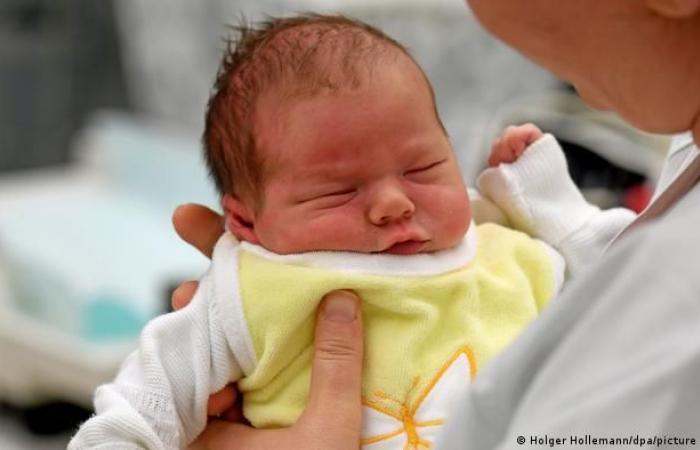Deutsche Wellei
Deutsche Welle https://istoe.com.br/autor/deutsche-welle/
03/20/2024 – 15:31
The number of births in the country was the lowest since 2009. Researchers suggest that an accumulation of crises, with war in Ukraine, inflation and climate change, may have deterred future parents, at least temporarily. The Federal Institute for Population Research (BiB) in Germany reported this Wednesday (20/03) that there was a sharp drop in the number of births in the country in 2023, which registered its lowest level since 2009.
The study authors suspect that the consequences of the coronavirus pandemic, geopolitical uncertainty stemming from the war in Ukraine and fears about climate change may be among the reasons why people are delaying or abandoning plans to have children.
What do the numbers show?
The birth rate in Germany fell from 1.57 children per woman in 2021 to around 1.36 in the second half of 2023. BiB called this sharp two-year decline “unusual, as declines in birth rates tended to occur more slowly in the past”.
The researchers said that the succession of several crises, such as the Covid-19 pandemic, the war in Ukraine, high inflation and climate change, could be behind the drop in birth rates. “In a period of multiple crises, many do not implement the desire to have children,” said study co-author Martin Bujard, from BiB.
Germany’s birth rate remained stable during the start of the pandemic in early 2020, but fell to 1.4 as the coronavirus crisis progressed. The authors estimate that many women postponed their plans to have children so that they could be vaccinated, as vaccines at the time were not approved for pregnant women.
Birth rates recovered in mid-2022, but fell sharply from the end of that year as the impact of high inflation began to be felt due to the effects of the war in Ukraine.
How significant is the decline?
The authors said it is not yet possible to predict whether there is a long-term trend of falling birth rates or whether this is just a temporary effect.
Persistently low birth rates contribute to population aging. For society, this phenomenon can represent challenges such as a possible reduction in the number of qualified workers for the job market and a greater cost for the retirement system.
According to the BiB, the birth rate in the former West Germany and present-day Germany fluctuated between 1.2 and 1.4 children per woman for four decades after 1975 and was for a long time among the lowest in Europe. From 2015 to 2021, it was significantly higher, with values of 1.5 to 1.6.
bl (AFP, KNA)






